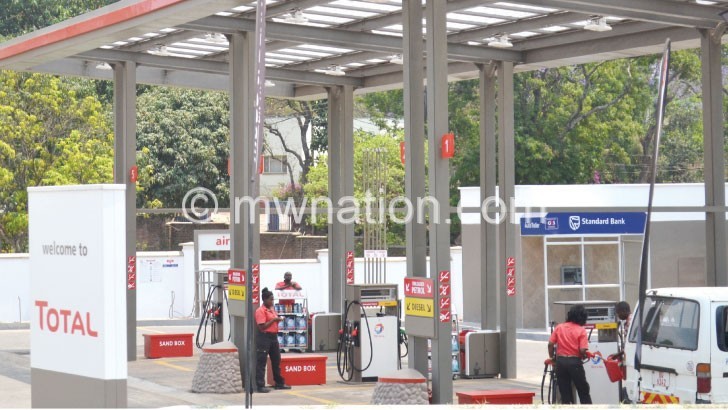
Malawi Energy Regulatory Authority (Mera) says it is committed to ensuring that consumers pay the right prices for fuel while enabling retailers to meet their allowable costs to ensure adequate fuel supply.
Mera spokesperson Fitina Khonje said this in an e-mailed response on Friday in reaction to rising global oil prices following the easing of travel restrictions in some economies across the globe.

She said: “Indeed local prices respond to movements in global oil prices, among other factors. The rise in global oil prices and the impact on local prices will be assessed at a certain time to determine if it is significant enough to warrant local pump price revision.
“The strategic fuel reserves and other storage facilities in the country are also recording adequate stock days coverage and are offering the much-needed security of supply.”
Up to the first half of this year, Mera revised fuel prices downwards three times before maintaining them at K690.50 per litre for petrol, K664.80 per litre for diesel and K441 per litre for paraffin.
But Consumers Association of Malawi executive director John Kapito said in an interview that fuel price reductions have failed to cushion consumers “who continue to pay high prices on consumer goods, especially minibus and other transport fares”.
Energy expert Grain Malunga said the rising global oil prices could lead to a rise in pump price on the local market as players strive to meet importation costs.
Two weeks ago, Reserve Bank of Malawi (RBM) Governor Wilson Banda said in the Monetary Policy Committee statement that there are impending significant inflationary pressures emanating from a gradual pick-up in food prices, increased short-term pressure on the exchange rate, increase in global oil prices and increased public sector financing requirements.
Published figures from RBM latest report indicate that Brent crude oil prices climbed to $43 (K31 820) per barrel by mid-July 2020 from $22.40 (K16 576) per barrel at the end of March 2020.
Projections show that Brent crude oil price is projected to average $40 (K29 600) per barrel in 2020 and $45 (K33 330) per barrel in 2021 before rising to $50 (K37 000) per barrel in 2022 as travel restrictions in some economies ease.
When making its price determination, Mera assesses the combined effect of the movement of the Free On Board (FoB) prices and kwacha exchange rate against the dollar as well as changes in local factors that determine the maximum pump prices.
In the recent past, the kwacha remained stable at an average of K750 against the dollar, but over the past few weeks, the local unit seems to have lost its ground as it keeps on depreciating.
Fuel prices have a knock-on effect on the cost of transport, goods and services, which in the long-run impact inflation.
Headline inflation has declined to an average of 8.9 percent in the second quarter of 2020 from an average of 10.6 percent in the first quarter, on the back of weakening food and domestic fuel pump prices.
However, despite substantial fuel price reductions, consumers have failed to get a relief they desired as bus fares rose due to Covid-19 prevention restrictions.
The Nation_August 11, 2020_Grace Phiri-News Analyst
